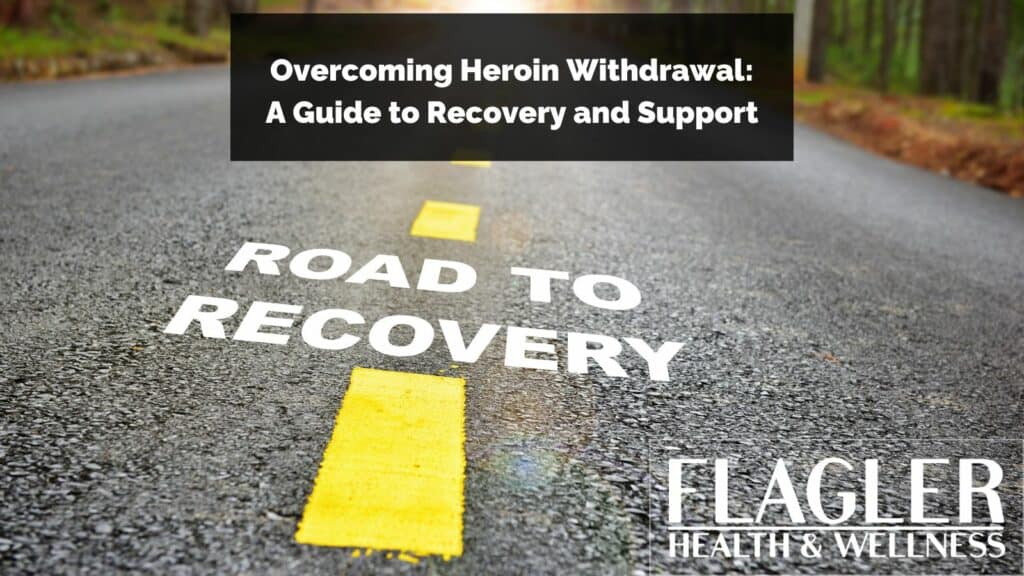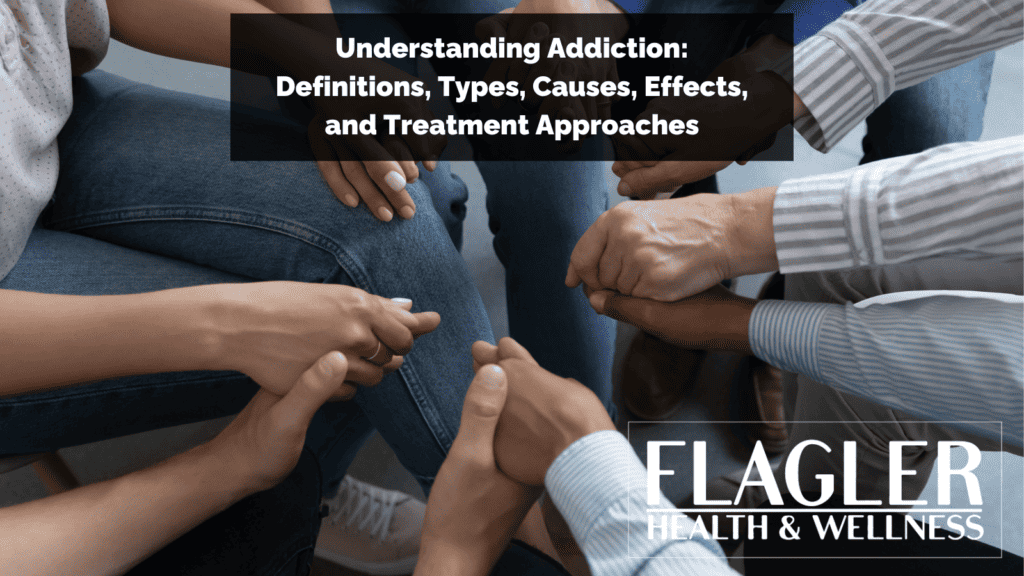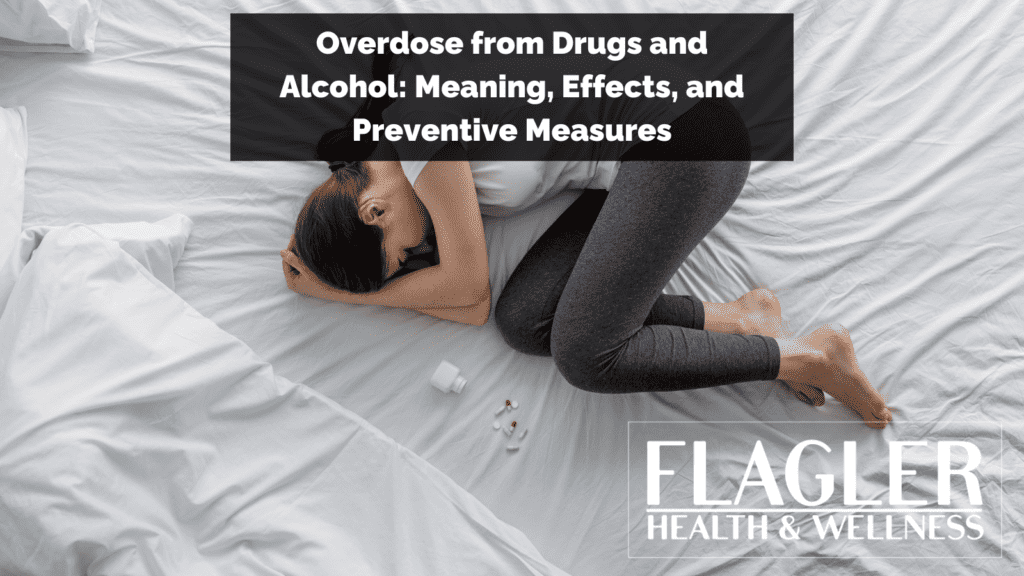Overcoming heroin withdrawal may seem daunting, but the process can be broken down into actionable steps. Let’s explore the difference between detox and withdrawal, and more information about the process so you can understand more about what it takes to recover from a dependency on heroin for yourself or a loved one. Our goal is to provide you with insight, tips, and guidance about how to find the support you need during what can be a difficult process.
What Is Heroin Withdrawal?
Heroin withdrawal occurs when someone who uses heroin stops or lowers their frequency of use. Heroin is an incredibly addictive drug, and people require professional help to recover once a physical dependency has been formed. Attending a medically supervised heroin detox is the first step to recovery, especially if someone is already experiencing withdrawal symptoms. Recovering from a heroin addiction is a challenging process that requires professional support, and gaining insight about the process is the first step to getting yourself or a loved one the help they need.
Symptoms Of Heroin Withdrawal During Detox
The symptoms of heroin withdrawal during detox may include a number of physical and psychological symptoms including muscle and bone pain, depression, insomnia, and drug cravings. Here is a detailed guide to some of the symptoms that may arise during the detox process:
Physical Symptoms
Heroin withdrawal comes with a wide range of physical symptoms, which typically begin within a few hours of the last dose. These symptoms can vary in intensity based on the duration and intensity of heroin use, and may include:
- Muscle and Bone Pain: This can range from mild discomfort to severe aches, often described as deep, penetrating pain in the muscles and bones.
- Restlessness and Insomnia: Difficulty sleeping is common, accompanied by an overwhelming sense of restlessness, making it hard to stay still.
- Gastrointestinal Distress: This includes symptoms like diarrhea, vomiting, and nausea, which can lead to dehydration if not properly managed.
- Difficulty Breathing: Shortness of breath and a feeling of tightness in the chest may occur.
- Increased Heart Rate and Hypertension: A rapid heartbeat and elevated blood pressure are common during withdrawal.
Psychological Symptoms
The psychological impact of heroin withdrawal is significant and can persist even after physical symptoms subside. These symptoms can include:
- Anxiety: Feelings of nervousness and unease are common, often accompanied by an inability to relax.
- Depression: This may range from mild to severe depression, including feelings of hopelessness and low self-worth.
- Intense Cravings for Heroin: The desire to use heroin again can be overwhelming and is one of the major challenges in the early stages of recovery.
- Cognitive Difficulties: This encompasses problems with concentration, memory, and impaired decision-making.
- Mood Swings: Rapid and unpredictable changes in mood, including irritability and anger, are common.
- Psychosis: In severe cases, individuals may experience hallucinations or paranoid delusions.
How Long Does Heroin Withdrawal Take During Detox?
Heroin withdrawal can take anywhere from a week to several weeks. The withdrawal process varies in duration and intensity from person to person. Understanding the detox timeline is important for setting realistic expectations and to help you prepare for the journey ahead.
Initial Phase: The Onset of Withdrawal
- The first 6-12 Hours: Symptoms can begin a few hours after the last dose was taken. People may experience mild drug cravings and anxiety during this phase.
- The next 24-48 Hours are often the most uncomfortable part of withdrawal, as symptoms become more intense. This is also when people experience peak levels of physical symptoms like severe muscle aches and stomach pain.
Peak Phase: Height of Symptoms
- Days 2-3: This is typically when symptoms reach their peak. Individuals may experience extreme discomfort, including intense cravings, severe nausea, vomiting, and sweating.
- Day 4: There is usually a noticeable decrease in the intensity of physical symptoms at this point. Psychological symptoms, however, may continue or even become more intense.
Subsiding Phase: Symptoms Begin to Ease
- Days 5-7: The acute physical symptoms start to subside significantly, but psychological and emotional challenges often continue. During this phase, individuals may still experience cravings, depression, and anxiety.
- End of the First Week: By this time, most of the severe physical symptoms have subsided. However, it’s important to note that psychological and emotional symptoms can persist for weeks or even months.
Post-Acute Withdrawal Syndrome (PAWS)
- Beyond the First Week: Some people may experience a prolonged withdrawal phase known as Post-Acute Withdrawal Syndrome (PAWS). This can last for several months during which people may experience mood swings, sleep disturbances, persistent anxiety, and reduced stress tolerance.
- Long-term Recovery: detox is just the beginning of the recovery journey. Ongoing support through therapy, counseling, and support groups is essential for long-term sobriety and coping with PAWS.
What Happens During Heroin Withdrawal?
Heroin withdrawal is a multifaceted process where the body and mind readjust to the absence of the drug. During heroin withdrawal, individuals may experience a range of symptoms, including but not limited to nausea, sweating, anxiety, and muscle pain. This challenging phase is a pivotal step towards achieving sobriety.
Factors that Affect Heroin Withdrawal
Various factors can influence the severity and duration of heroin withdrawal. Factors affecting heroin withdrawal include the duration and intensity of heroin use, individual health, and the presence of co-occurring mental health disorders. Understanding and addressing these factors are crucial for tailoring effective treatment plans.
How To Treat Heroin Withdrawal
Treating heroin withdrawal requires a comprehensive approach that combines medical, psychological, and social interventions. Seeking professional help from healthcare providers experienced in addiction treatment is crucial. A medically supervised detox is only the first step of a successful withdrawal process. Other forms of support, such as medication assisted treatment (MAT) and consistent therapy in an inpatient setting can be a necessary part of achieving positive recovery outcomes.
Treatment Plan For Heroin Withdrawal During Detox
Having a structured treatment plan during detox is important for a successful recovery journey and will be unique to the individual. Managing withdrawal symptoms, whether they are physical, emotional, or psychological is of the utmost importance. This may involve being prescribed medication to help individuals cope with more intense withdrawal symptoms and or different kinds of therapy to help ease and manage the emotional aspects of the detox process.
Can I Die from Heroin Withdrawal?
While heroin withdrawal itself is typically not fatal, there are potential risks associated with withdrawal symptoms. The risks of dying from heroin withdrawal are often related to complications arising from dehydration, heart issues, respiratory complications, or other health concerns. Seeking medical supervision during withdrawal significantly reduces these risks.
Can Heroin Withdrawal Cause A Heart Attack?
Heart attacks are a potential side effect of heroin withdrawal, usually in cases of long-term and heavy heroin use. A medically supervised detox ensures that people withdrawing from heroin are monitored 24/7 in the case of an emergency and to help treat any symptoms that are present. Consulting a medical professional during the withdrawal process is the best way to look after your wellbeing during what can be a difficult, unpredictable process.
How to Cope with Heroin Withdrawal
Coping with heroin withdrawal requires a multi-faceted approach to see what works best for you. Consulting a medical professional is always a good first step. Rehab programs offer medically supervised detox as well as different treatment options including group and private therapy that can offer you comprehensive support. Getting plenty of rest, eating nutritious food, staying hydrated, and spending time in nature are all good ways to help cope with heroin withdrawal.
Get Help At Flagler
At Flagler, we offer a range of treatment options to assist individuals struggling with heroin addiction. From the initial detox phase to ongoing therapy and support, we are committed to providing compassionate and effective care tailored to each individual’s needs. No matter where you are on your recovery journey, there is always help available. Contact us today for more information about how our heroin treatment programs can help you or a loved one.
Share This Post







